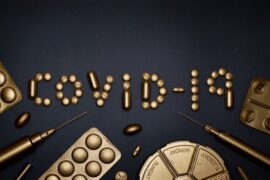Car accidents, marked by their sudden and unpredictable nature, can lead to various injuries, spanning from minor discomfort to severe trauma. Whether it’s a fleeting ache or profound physical distress, these injuries pose a significant challenge for those who find themselves entangled in the aftermath of a vehicular collision.
By knowing more about the intricacies of these injuries, you can feel more confident in finding the right treatment and recovery methods. This guide aims to inform you about all common car accident-related injuries, providing details into their nature, severity, and steps to regain your health and wellbeing.
Whether you’ve experienced a minor fender-bender or a more serious collision, knowing what lies ahead in your recovery process is essential for making informed decisions and securing the care you need.
The Role Of Medical Evaluation
Following a car accident, seeking immediate medical evaluation is not just advisable; it’s imperative. Such an evaluation serves a dual purpose: it ensures the wellbeing of those involved while identifying hidden injuries that may not exhibit immediate symptoms.
Often, the adrenaline rush and shock experienced after an accident can mask pain or discomfort, making it crucial to have a professional medical assessment and seek support from the Naples Community Injury Care Center.
Common Car Accident Injuries
Though often sudden and unexpected, car accidents can result in many injuries. They can vary in severity, affecting different body parts and demanding different medical attention.
Here are the following injuries that are common in car accidents:
- Whiplash – Whiplash is the most common injury in a car accident, typically due to the sudden, forceful jolts of the head and neck against normal movements during a collision. Symptoms usually include neck pain, muscle stiffness, and headaches. While it is often considered a minor injury, it will likely greatly impact daily life.
- Fractures and broken bones – Impact during a car accident can lead to fractures or broken bones, often occurring in the limbs or ribs. These injuries vary in severity, from hairline to compound fractures requiring surgical intervention.
- Concussions and traumatic brain injuries (TBIs) – Even a seemingly minor car accident can result in head injuries. Concussions and traumatic brain injuries require immediate medical attention, as their effects can be long-lasting and life-altering.
- Spinal cord injuries – Car accidents can cause serious back and spinal cord injuries, often leading to long-term consequences. These injuries may include herniated discs, spinal fractures, or nerve damage.
- Soft tissue injuries – Sprains, strains, and contusions often result from the sudden impact of a car accident. While they may not be immediately life-threatening, they can be painful and require extended recovery.
Immediate Post-Accident Care
Following any accident, seeking immediate medical attention is essential, even if injuries appear minor. Early medical intervention serves several vital purposes. First and foremost, it ensures that any hidden or potentially serious injuries are promptly identified and addressed. Additionally, it can help alleviate pain and discomfort, prevent complications, and set the stage for a smoother and more successful recovery.
Treatment Options For Car Accident Injuries
Recovery often begins after a car accident by understanding the available treatment options. Whether you’ve experienced minor injuries or more severe trauma, knowing your options is crucial to receiving the care you need.
Below are some helpful professionals you can speak with.
- Medical Care – Medical doctors play a central role in evaluating and treating car accident injuries. They provide essential care, diagnose underlying issues, and offer recommendations for recovery.
- Physical therapy – Physical therapists specialize in helping patients regain strength, flexibility, and mobility after injuries. They design customized exercise programs to facilitate rehabilitation.
- Chiropractic care – Chiropractors focus on spinal health and alignment. They aim to improve spinal function and alleviate pain through manual adjustments and other techniques.
- Surgery – In severe injuries, surgical intervention may be necessary to restore function. Orthopedic surgeons and neurosurgeons perform spine surgery and other procedures to repair fractures, herniated discs, and other severe issues.
Personalized Treatment Plans
Each patient’s journey to recovery is unique. Chiropractors, physical therapists, and medical doctors collaborate to tailor personalized treatment plans that address the specific type and severity of the patient’s injuries, their overall health, and individual preferences.
The Importance Of Rehabilitation
Rehabilitation therapies, such as physical therapy and chiropractic care, are key components of the recovery process. These therapies focus on restoring function, mobility, and strength after car accident injuries.
Dealing With Psychological Trauma
Car accidents can have lasting psychological effects. Coping with an accident’s emotional and mental trauma is as vital as addressing physical injuries. Counseling or therapy may be necessary to address anxiety, depression, or post-traumatic stress disorder (PTSD).
Don’t Let Your Injuries Go Unnoticed
Recovering from car accident-related injuries is a path that requires a comprehensive approach. By understanding the range of injuries that can occur, seeking prompt medical evaluation, and following personalized treatment plans, individuals can pave the way to a healthier and more secure future.


































